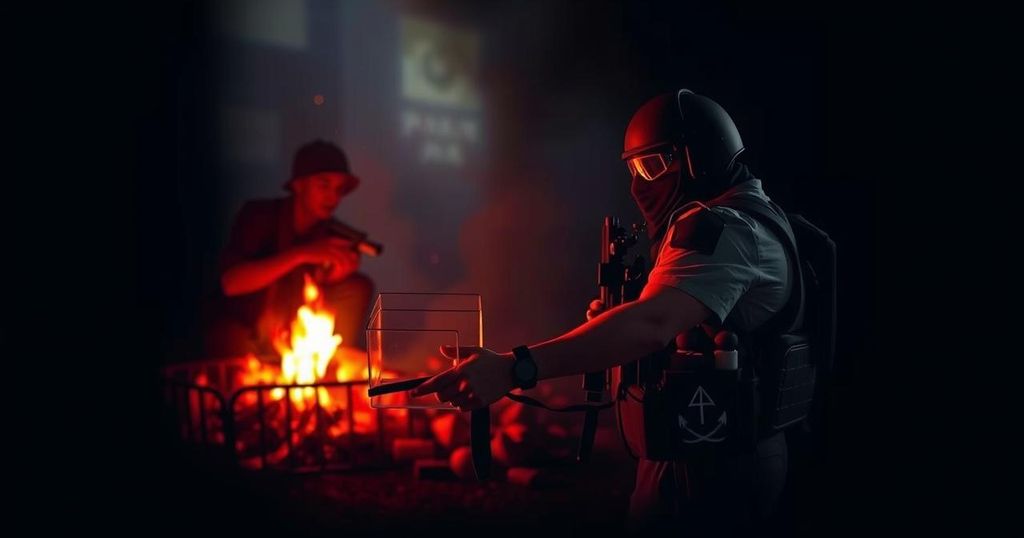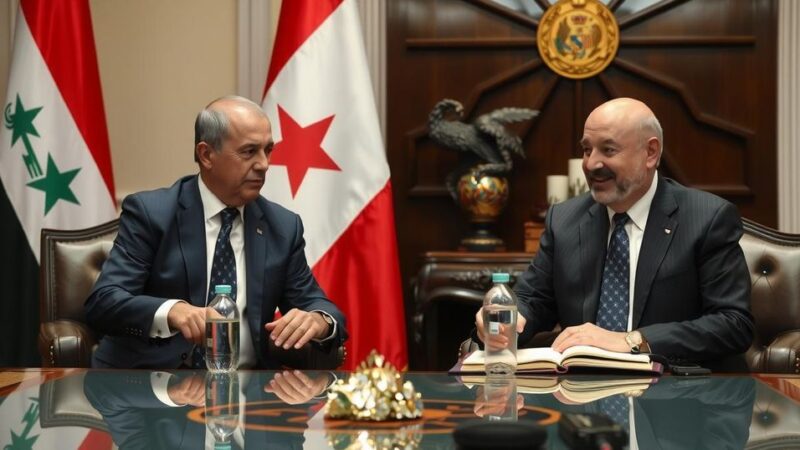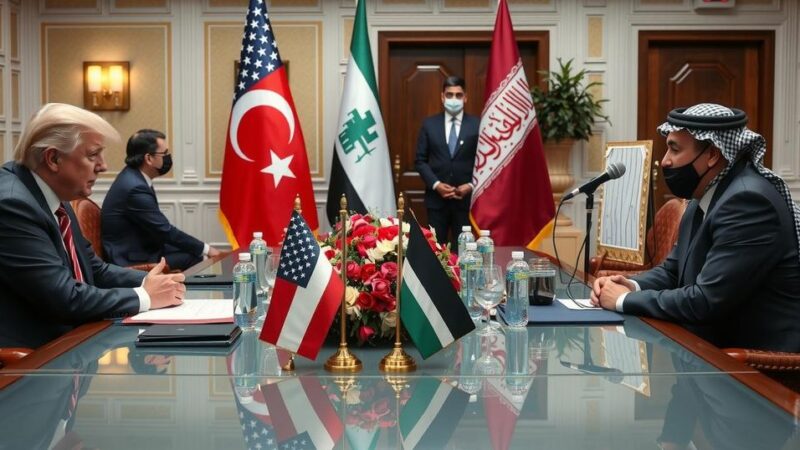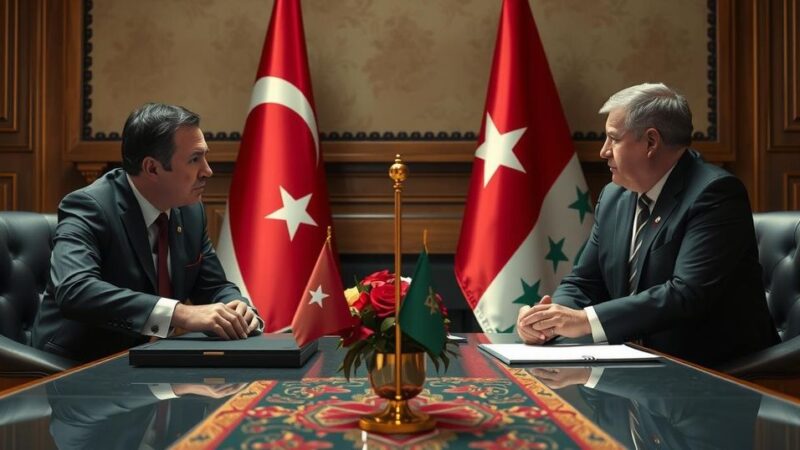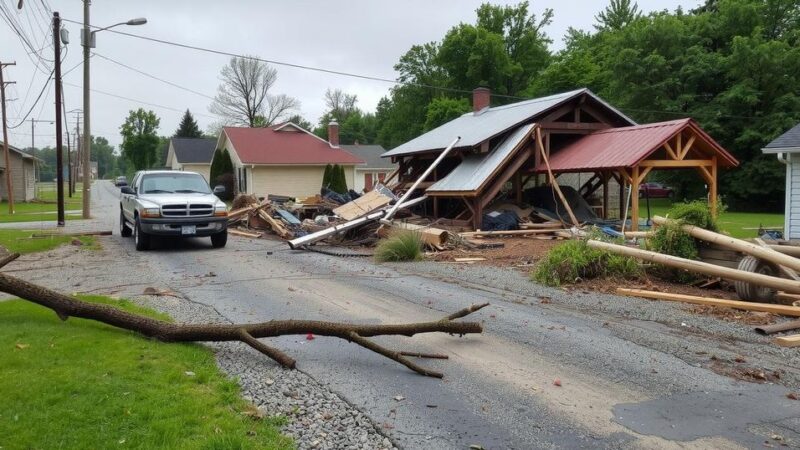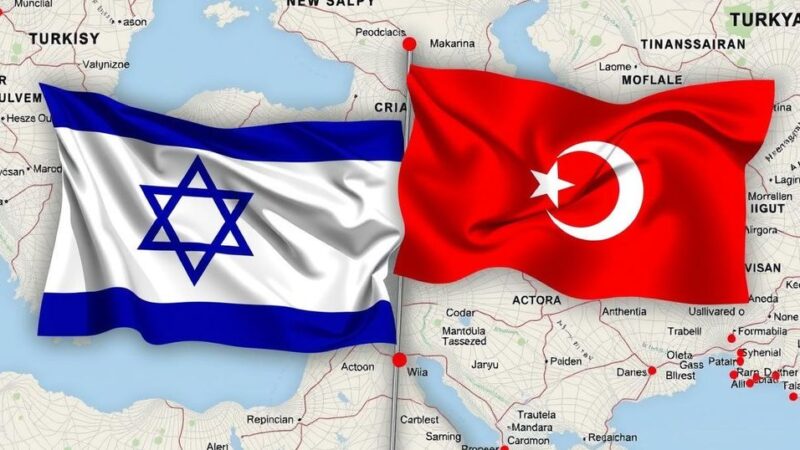Egyptian President Abdel Fattah el-Sissi has proposed a two-day ceasefire between Israel and Hamas, aiming for the release of four hostages. The proposal includes provisions for Palestinian prisoner releases and humanitarian aid deliveries. Current discussions are underway in Qatar. There have been no ceasefires since November, and the situation in Gaza remains critical, with significant civilian casualties reported.
Egyptian President Abdel Fattah el-Sissi has made a significant proposal for a two-day ceasefire between Israel and Hamas, aiming to facilitate the release of four hostages currently held in Gaza. This proposal, announced on a recent Sunday, also entails provisions for the release of certain Palestinian prisoners and aims to facilitate humanitarian aid deliveries to the besieged region. As of now, there has been no response from either Israel or Hamas regarding this ceasefire, although discussions are expected to progress in Qatar, a key mediator in the ongoing conflict. President Sissi characterized the ceasefire as a strategic move to “move the situation forward,” expressing the hope that this could pave the way for negotiations leading to a more lasting resolution. However, previous attempts to establish a long-term ceasefire have consistently faltered, with Hamas demanding the withdrawal of Israeli forces from Gaza and Israeli Prime Minister Benjamin Netanyahu asserting that military operations will persist until Hamas is entirely dismantled. It is noteworthy that there has been an absence of ceasefire agreements since last November. On the day of the proposal, the head of Israel’s Mossad intelligence agency visited Doha for discussions with Qatar’s Prime Minister and the CIA chief, marking renewed efforts to de-escalate the ongoing violence and address the heightened regional tensions that have surged since Hamas’s assault on southern Israel on October 7, 2023. Simultaneously, Iran’s Supreme Leader, Ayatollah Ali Khamenei, has urged a cautious approach in response to Israeli airstrikes, refraining from direct calls for retaliation. Israeli officials, including Prime Minister Netanyahu, have stated that they have succeeded in degrading Iran’s military capabilities, particularly concerning missile production. The escalating conflict has broad implications, as tensions have also extended to Lebanon, where Hezbollah has intensified its attacks on Israeli positions. Recent airstrikes by Israel in southern Lebanon have led to casualties, accentuating the regional instability. Additionally, violent incidents have occurred within Israel, including a truck attack near Tel Aviv that resulted in casualties. The situation in Gaza has become increasingly dire, with the Gaza Health Ministry reporting the deaths of over 42,000 Palestinians since the conflict reignited following Hamas’s initial assault on October 7. According to recent reports, Israel’s airstrikes have led to significant civilian casualties, including many women and children. The United Nations Secretary-General described the conditions in Gaza as “unbearable” for its inhabitants. The ongoing hostilities have left substantial devastation in their wake, displacing approximately 90% of Gaza’s 2.3 million residents, marking a particularly tragic chapter in the enduring Israeli-Palestinian conflict.
The proposal for a ceasefire by Egyptian President Abdel Fattah el-Sissi occurs in the context of a protracted and escalating conflict between Israel and Hamas, which has seen significant loss of life and humanitarian crises. The conflict reignited on October 7, 2023, following a surprise attack by Hamas on Israel, which led to retaliatory airstrikes and military operations. Historically, ceasefire attempts have floundered due to divergent demands and conditions set by both parties. Egypt has emerged as a mediator in this conflict, with Qatar playing a crucial role in facilitating dialogue. Amidst the violence, the humanitarian situation in Gaza has deteriorated significantly, prompting international concern and calls for a ceasefire. The backdrop of Iranian involvement and regional tensions, particularly with Hezbollah, adds further complexity to the situation.
In summary, the proposed two-day ceasefire by Egyptian President Abdel Fattah el-Sissi represents a pivotal attempt to mitigate violence between Israel and Hamas and secure the release of hostages. Despite the lack of immediate response from both parties, there exists a glimmer of hope for negotiations that may lead to a more sustainable peace. The ongoing conflict has precipitated a dire humanitarian crisis in Gaza, escalating regional tensions and highlighting the urgent need for comprehensive diplomatic efforts to resolve the conflict. Failure to address these issues may continue to exacerbate the already volatile situation.
Original Source: www.newsweek.com

